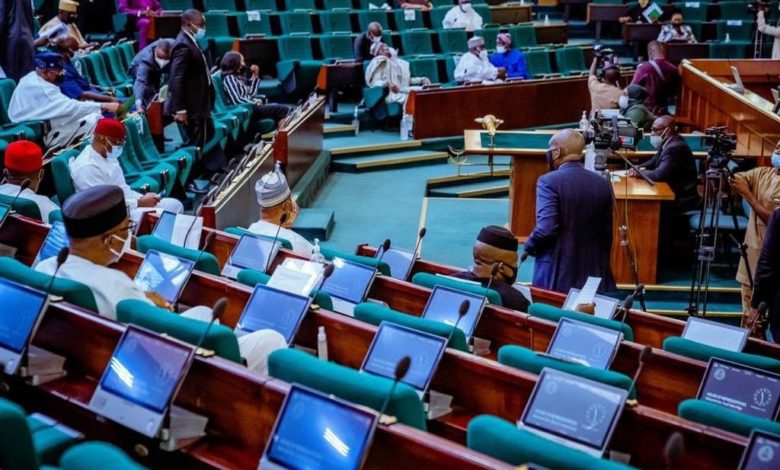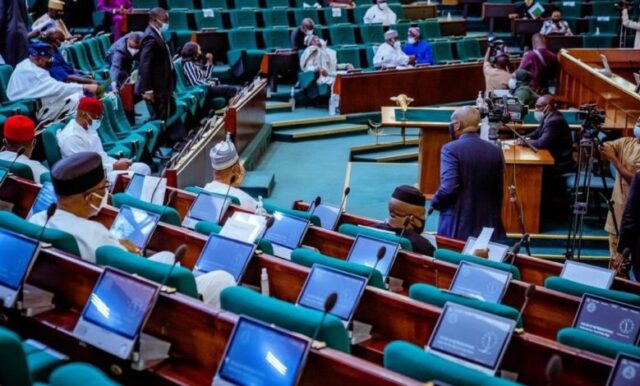
Uche Amunike
The Nigerian press organisation (NPO), has urged the House of Representatives to drop the appeal seeking the amendment of the Nigerian Press Council Act, citing that it is still a case of litigation in the supreme Court.
The House Committee on Information, National Orientation, Ethics and Values, which organized the hearing on the bill insisted on going on with the exercise in spite of their plea.
Before now, the committee planned the hearing on five bills which includes the ‘Bill for an Act to Amend the Nigerian Press Council Act, CAP N128; Laws of the Federation of Nigeria 2004 to Remove Bottlenecks Affecting its Performance and Make the Council in Tune with Current Realities in Regulating the Press and for Related Matters (HB 330).
The committee chairman, Olusegun Odebunmi apologised to the media bodies especially (NPAN) which protested on Wednesday for being excluded at the opening of the event, explaining that an open invitation to the event was extended to stakeholders.
‘So, I am sorry if there’s anybody who thinks we did not invite them it is not my intention. It was definitely a mistake. Notwithstanding, we have covered everybody through our advert’ he said.
The representative of the NPO and Editor-in-Chief of Leadership Newspaper, Azubuike Ishiekwene frowned against not receiving any notification as it would have ensured that they engaged the lawmakers and Nigerians robustly on the bill.
Ishiekwene said, ‘I am sure that as stewards of the people and the law, you are aware that there is a pending matter between the NPO and some parties involved in this legislation. That is why a negotiated conversation seems to us to be a way to deal with it because there is a matter pending before the Supreme Court between the NPAN and some parties involved in this bill that is being amended. And as stewards of the law, I am sure you are constrained, just as I am to make any further conversations on this matter because it is a pending matter before the Supreme Court. The last time it came up in 2010 – it is a matter that has actually been pending since 1999 – 17 of the 39 clauses contained in the bill that you are considering were ruled unconstitutional by the court at that time. Of course, the Federal Government appealed the ruling. We won the appeal and the matter is currently before the Supreme Court. I will rest my case by appealing to the honourable members of this committee; I crave your indulgence to refer to a conversation that was had on a similar matter in 2018 when this matter came up before the Senate and the pendency of this matter before the court was canvassed. The Senate – the 8th National Assembly – at that time agreed that the prudent thing to do was to step it down. I urge this House to also consider a similar step.’
Odebunmi, however, said, “It is not about the matter in court, it is an Act of the National Assembly and we deemed it fit to amend it and we are doing that. It does not stop you from what you are doing, but this is the position of the National Assembly,’ he said.
Furthermore, the International Press Centre, Media rights Agenda, Centre for Media Law and Advocacy and Premium Times Centre for Investigative Journalism in a joint memorandum titled, ‘For a truly Independent and Media Freedom Friendly Nigeria Press Council’, called on the National Assembly to expunge all laws intended to criminalize free speech and press.
The memo was signed by the Executive Director, IPC, Lanre Arogundade; Executive Director, MRA Edetaen Ojo; Executive Director, CMLA; Richard Akinola; and Executive Director, PTCIJ, Dapo Olorunyomi
The memo, as read by Arogundade said: ‘First, we like to say that the international behaviour towards media regulation is peer regulation, constitutionally guaranteed freedom of the press, and the expunging from statute all laws that criminalises freedom of expression. This is the line the committee should tow like Ghana has done and like South Africa has done; and with regards to throwing off defamation statute from the books, the way Sierra Leone has done.’
The Executive Secretary of the Nigerian Press Council, Francis Nwosu maintained that some issues still lingered even after all the efforts put in by former Ministers of Information and former legislators to resolve them. They called for the amendment of section 3(1)(a) which empowered the council to regulate the print media and related Media houses and demanded that the related Media houses be limited to online print Media.
‘The inclusion of fake news is a welcome development. The proposed Act should define what will constitute fake news for easy interpretation. The council suggests that a provision against hate speech should also be included in this amendment’, he concluded.







